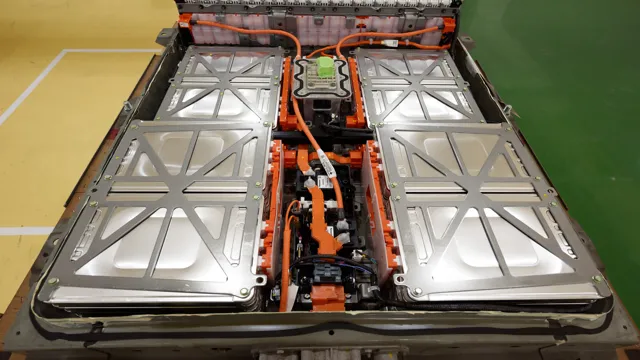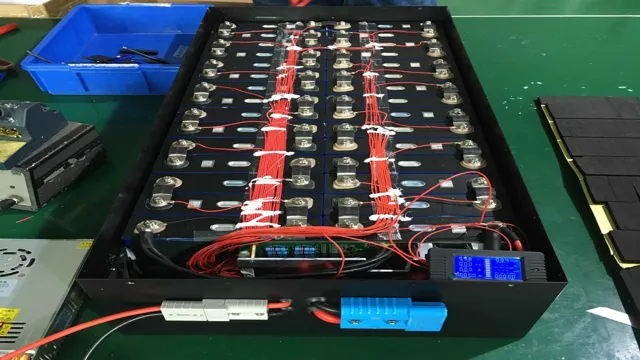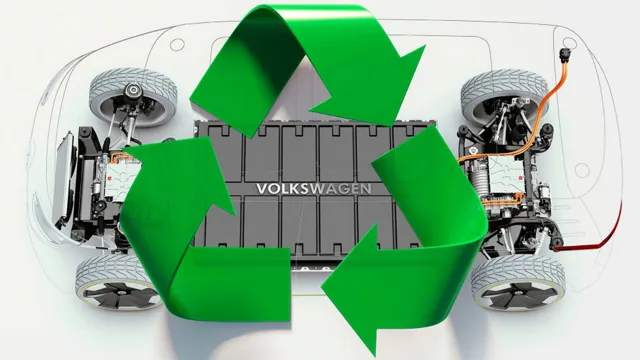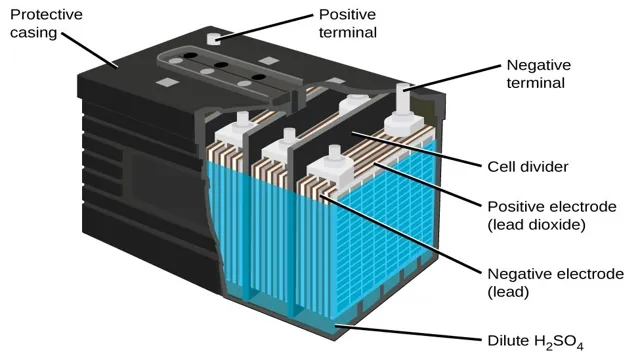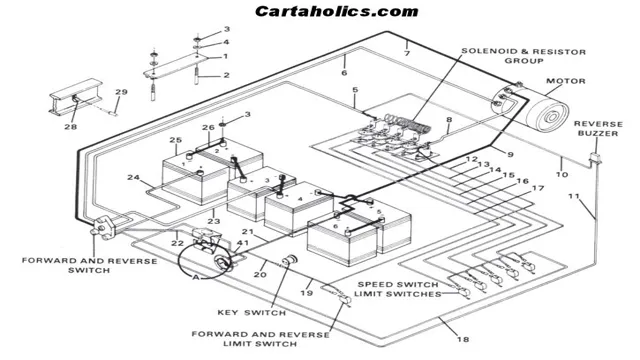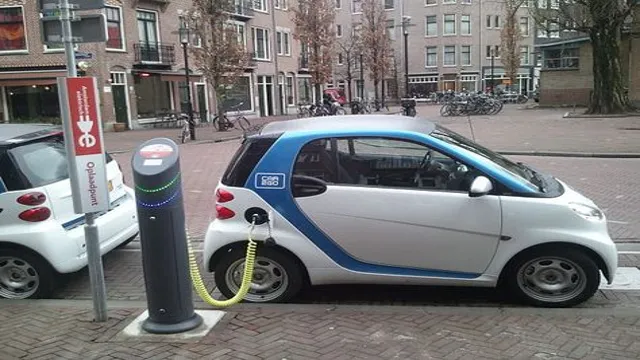Revolutionizing the Road: The Latest Improvements in Electric Car Battery Technology
Electric vehicles (EVs) are taking the automobile industry by storm due to their reduced carbon footprint and contribution towards sustainable development. However, the driving range of these vehicles is still a major concern among consumers, with most EVs capable of travelling only 100-150 miles before needing a recharge. Manufacturers are now revolutionizing their battery technology to increase the distance an EV can travel on a single charge, with some companies already producing batteries that offer 400+ miles of driving range.
This leap in technology is expected to lead to a surge in EV adoption rates and pave the way for a cleaner and greener future.
Current State of Electric Car Batteries
Electric car battery improvement has been a hot topic in recent years, with many automakers investing in technologies to increase range and reduce costs. While early electric cars had limited ranges and expensive batteries, modern electric vehicles can travel hundreds of miles on a single charge at a price point that is becoming more affordable. One of the biggest advancements in electric car battery technology has been in lithium-ion batteries, which offer higher energy densities and longer lifespans than previous battery chemistries.
Additionally, automakers are exploring the use of solid-state batteries which offer even higher energy densities and faster charging times than traditional lithium-ion batteries. As electric car battery technology continues to improve, it is likely that we will see more affordable and long-range EVs on the market in the near future, making electric cars a more viable option for everyday drivers.
Battery Range and Charging Time
Electric Car Batteries The current state of electric car batteries has come a long way over the years. With advancements in technology, battery range and charging times have significantly improved. Electric car batteries nowadays can travel up to 400 miles before needing a charge, which is a huge improvement from the original range of 100 miles.
This is great news for those who are hesitant to switch to electric vehicles due to range anxiety. Charging times have also improved, with fast charging stations that can charge a battery from 0-80% in as little as 30 minutes. While this is still longer than refueling a gas-powered car, it is a significant improvement and offers electric vehicle owners more flexibility.
As technology continues to advance, we can expect electric car batteries to continue to improve and become an even more viable option for those looking to reduce their carbon footprint and save on fuel costs.
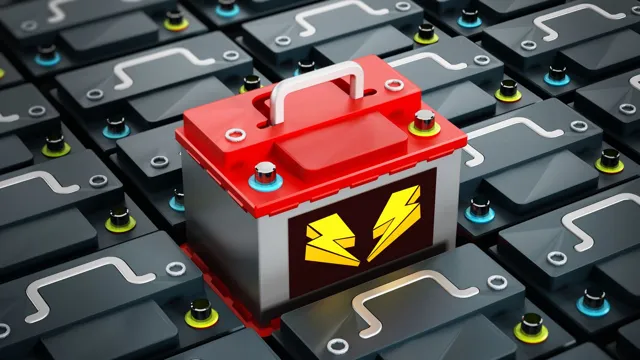
Environmental Impacts of Battery Production
The current state of electric car batteries and their production is an important topic to discuss when considering the environmental impact of electric vehicles. While electric cars are more environmentally friendly than traditional gasoline-powered vehicles, the production process of the batteries comes with its own set of challenges. The production of electric vehicle batteries requires a significant amount of energy and resources, and the mining of materials such as lithium, cobalt, and nickel for use in batteries can create negative environmental impacts.
However, advancements are being made in battery technology and production, with manufacturers focusing on reducing the environmental impact of production and increasing the lifespan and efficiency of batteries. Despite these challenges, the growing demand for electric vehicles and the potential for a more sustainable transportation system means that the industry needs to continue making progress in this area.
Recent Battery Improvements
Electric car battery improvement has been a buzzword in the automotive industry, and recent developments have brought about significant advancements. One of the most promising innovations is the solid-state battery. Unlike traditional lithium-ion batteries, solid-state batteries employ a solid electrolyte, which enhances energy density and ultimately extends the car’s range.
Additionally, they are safer and less prone to fire hazards because they don’t have a liquid electrolyte that can leak, corrode, or catch fire. Another significant improvement is the use of silicon in place of graphite in battery anodes. Silicon allows for more lithium ions to bind to it, increasing energy density without requiring a larger battery size.
Nonetheless, a higher energy density also means that the battery is more prone to degradation over time. Other technologies, such as sodium-ion and zinc-air batteries, also show robust potentials as eco-friendly, cost-effective, and sustainable alternatives. As electric vehicles become more prevalent, battery improvements will become more important, and we’ll likely see more exciting advancements in the near future.
Longer Battery Range
Battery technology has come a long way in recent years and significant improvements have been made, resulting in a longer battery range for a variety of products. The development of newer batteries, such as lithium-ion batteries, has allowed for more efficient energy storage and longer-lasting charge. Lithium-ion batteries are now commonly used in smartphones, laptops, electric vehicles, and other electronic devices.
The advancements in battery technology have also made it possible for electric cars to travel longer distances on a single charge. The new generation electric cars have a range that can go up to 500 miles in a single charge. This has made electric cars a more viable option and has reduced the range anxiety that drivers once had.
This improvement in technology not only benefits the individual but also the environment with reduced emissions and pollution from petrol and diesel-powered cars. The future for battery technology looks bright as researchers work towards even more efficient and sustainable options, which could revolutionize the way we power our devices and vehicles.
Faster Charging Times
With recent breakthroughs in battery technology, faster charging times are becoming a reality. Batteries are being designed with higher energy densities, allowing them to store more power in a smaller space. This means that batteries can now charge faster than ever before.
In addition to this, charging algorithms have improved, allowing for more efficient charging and reducing the time needed to reach full capacity. The result is that we can now charge our devices in a fraction of the time it used to take. For example, many high-end smartphones now offer fast charging, allowing you to charge your phone from 0% to 50% in just 30 minutes.
This means you can quickly top up your phone’s battery while on the go, without having to wait around for hours. With battery technology continuing to improve, we can look forward to even faster charging times in the future.
Eco-Friendly Battery Production
As our world becomes more conscious of the impact we have on the environment, it’s no surprise that there’s been rapid advancements in eco-friendly battery production. One of the recent improvements is the use of recycled materials in the batteries themselves. This not only reduces the amount of waste that ends up in landfills but it also helps to lower the production costs of batteries.
Another advancement is the development of lithium-ion batteries that contain less cobalt. Cobalt is a material that’s been associated with unethical mining practices that have a negative impact on local communities and the environment. By reducing the amount of cobalt in these batteries, we can begin to move towards more sustainable and responsible battery production.
As more and more companies are committing to being eco-friendly, we can expect to see even further advancements in battery technology that prioritize the health of our planet.
Future Battery Technology
One of the most promising areas of electric car technology is battery improvements. Historically, battery technology has been a limiting factor in the widespread adoption of electric vehicles due to their limited range and long charging times. However, recent breakthroughs in battery chemistry and design have the potential to revolutionize the industry.
One area of focus is solid-state batteries, which offer higher energy density and faster charging times than traditional lithium-ion batteries. Additionally, companies are exploring the use of advanced materials such as silicon or lithium metal for anodes, which could further increase battery capacity and overall performance. As electric cars become increasingly popular, continued innovation in battery technology will be critical towards achieving mass adoption and reducing the carbon footprint of transportation.
Solid State Batteries
Solid State Batteries Solid state batteries are a promising technology for the future of battery production. Unlike traditional lithium-ion batteries that use liquid electrolytes, solid state batteries utilize solid electrolytes. This eliminates the risk of leakage, increases safety, and opens up the possibility of higher energy density and faster charging times.
Additionally, solid state batteries have the potential to be more environmentally friendly than traditional batteries, as they can be made with more sustainable materials. The use of solid electrolytes also helps prevent the formation of dendrites, which can cause short circuits and ultimately lead to battery failure. While solid state batteries are still in the early stages of development, they show great promise as a safer, more efficient, and more sustainable alternative to traditional batteries.
Wireless Charging
Wireless charging is revolutionizing the way we use and power our devices. This innovative technology eliminates the need for cords and cables, making it easier and more convenient to charge our electronics on the go. But what does the future hold for battery technology? With the development of wireless charging, it’s clear that advancements in battery technology will continue to shape the way we live our lives.
The possibilities are endless, from longer battery life to faster charging times. As the demand for more sustainable and efficient energy sources grows, we can expect to see even more breakthroughs in battery technology in the coming years. So, what does this mean for the average consumer? It means more convenience and flexibility in how we use our devices, and a more sustainable future for all.
Conclusion: Bright Future for Electric Vehicle Batteries
In conclusion, the technological advancements in electric car batteries have been nothing short of electrifying. From increased range to faster charging times, the improvements in battery technology have paved the way for a more sustainable future. With each new development, we are one step closer to a world where electric cars are the norm, and the environment is just a little bit cleaner.
So let’s charge up and hit the road – the future of transportation is looking brighter (and greener) than ever before!”
FAQs
How can electric car battery technology be improved?
There are several ways to improve electric car battery technology, including increasing energy density, improving charging speed and infrastructure, and reducing costs through economies of scale.
What is the current lifespan of an electric car battery?
The lifespan of an electric car battery varies depending on the make and model of the vehicle, but can generally last anywhere from 8-10 years or up to 100,000 miles.
Are there any new advancements in electric car battery technology?
Yes, there are several advancements in electric car battery technology, including solid-state batteries, which offer higher energy density and faster charging times, and lithium-sulfur batteries, which are lighter and more energy-efficient.
How can electric car batteries be recycled or disposed of?
Electric car batteries can and should be recycled at the end of their lifespan. This involves extracting valuable metals and materials, such as lithium and cobalt, which can then be reused in new batteries or other products. Several companies are also developing ways to repurpose old electric car batteries for energy storage systems.

